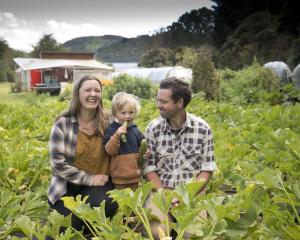
The results of trials carried out on about 40 sites throughout the country are being put on the New Zealand Plant Breeding and Research Association’s (PBRA) relaunched website.
General manager Thomas Chin said farmers needed new cultivars to be tested for their quality and performance, so they could make informed selections.
He said the investment farmers made in seed, crop and pasture establishment had to be returned in productivity and efficient farm systems as they were dealing with climate extremes, regulatory and market changes, as well as increasing costs.
The association represents plant breeders, intellectual property owners and managers of proprietary agricultural seed and endophytes.
Members are investing more than $25 million a year in research and development.
This includes research into improving plant genetics, endophytes and cultivar testing programmes such as the national forage variety trials — which test annual, perennial, Italian and hybrid ryegrasses — and cereal performance trials.
Trial sites stretch from Northland to Southland and include irrigated and dryland, grazed and mechanically harvested sites.
Industry-specific plant indexes such as Dairy NZ forage value index were also on the updated website, Mr Chin said.
PGG Wrightson Seeds marketing and IP general manager Alick Elliott said the company invested heavily into developing new cultivars because genetic gain was crucial to address the challenges facing today’s farmers.
The pastoral industry generated about $20 billion, directly and indirectly, into the economy. Quality seed and plant genetics drove productivity gains and helped farmers build resilience against a changing climate while striving to reduce nutrient losses and greenhouse gas emissions, Mr Elliott said.
"Plant breeders can play a significant role in addressing these challenges and helping the economy by helping farmers become more profitable and sustainable."
He said farmers wanted to sow the best varieties for their operation as putting new pasture in every year was a significant farm cost.
RAGT New Zealand commercial extension manager James White said the trialling and benchmarking component was important as it highlighted genetics and robust research and development.
"This helps drive industry and farmer awareness of the importance of improved technologies, plant genetics and the wider plant breeding process."
He said farming systems had come under increased pressure from regulations and a changing climate.














